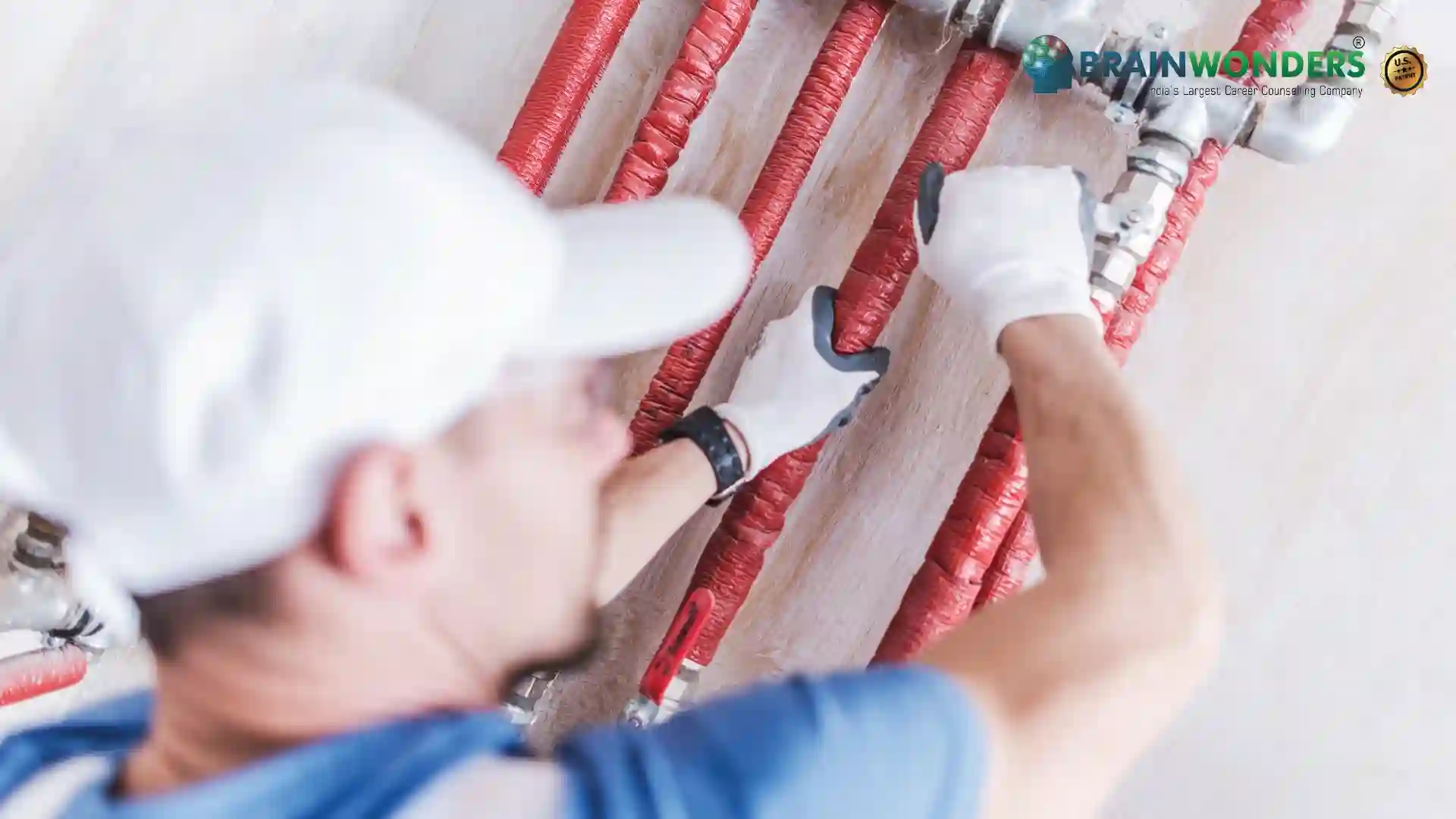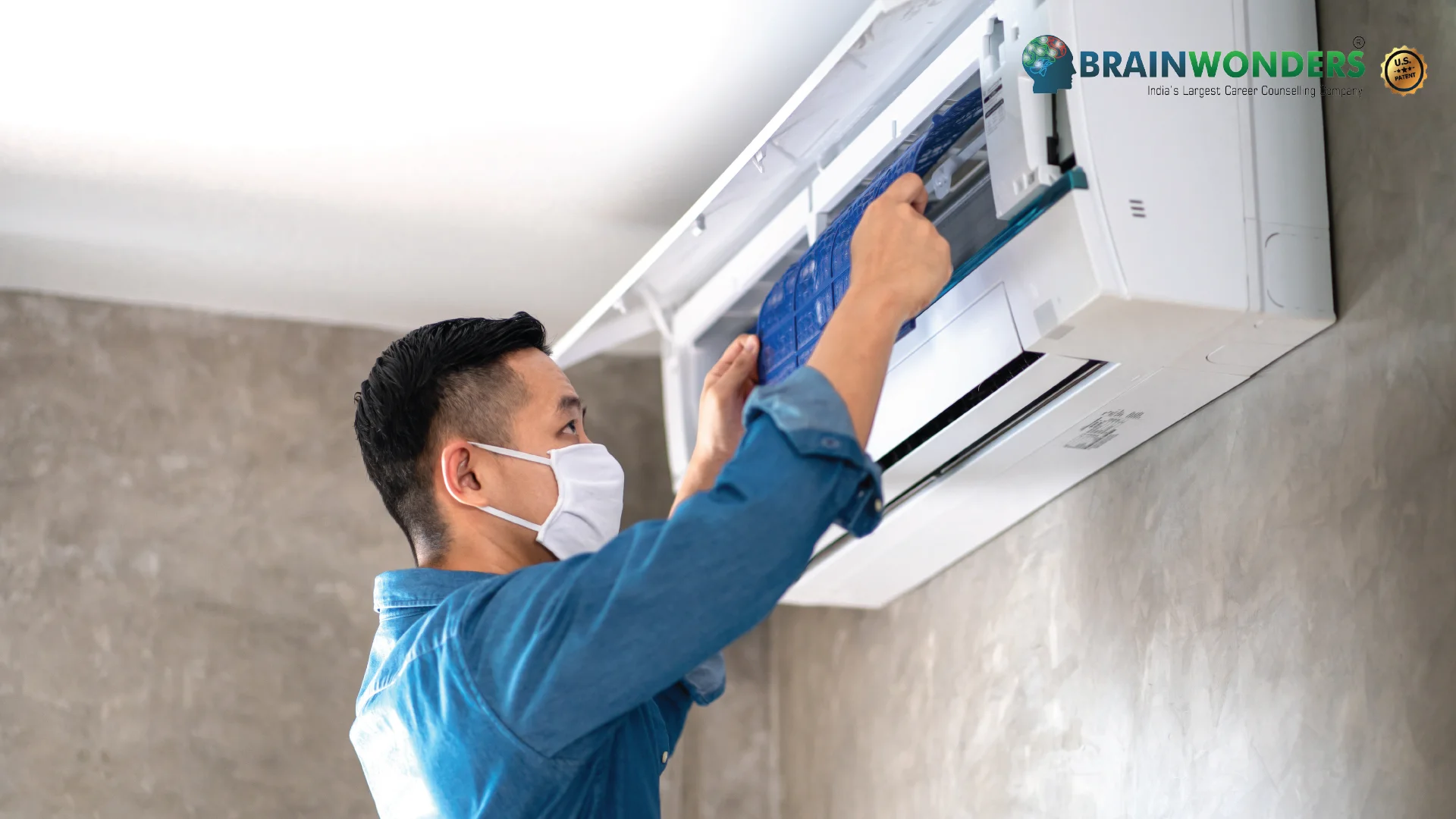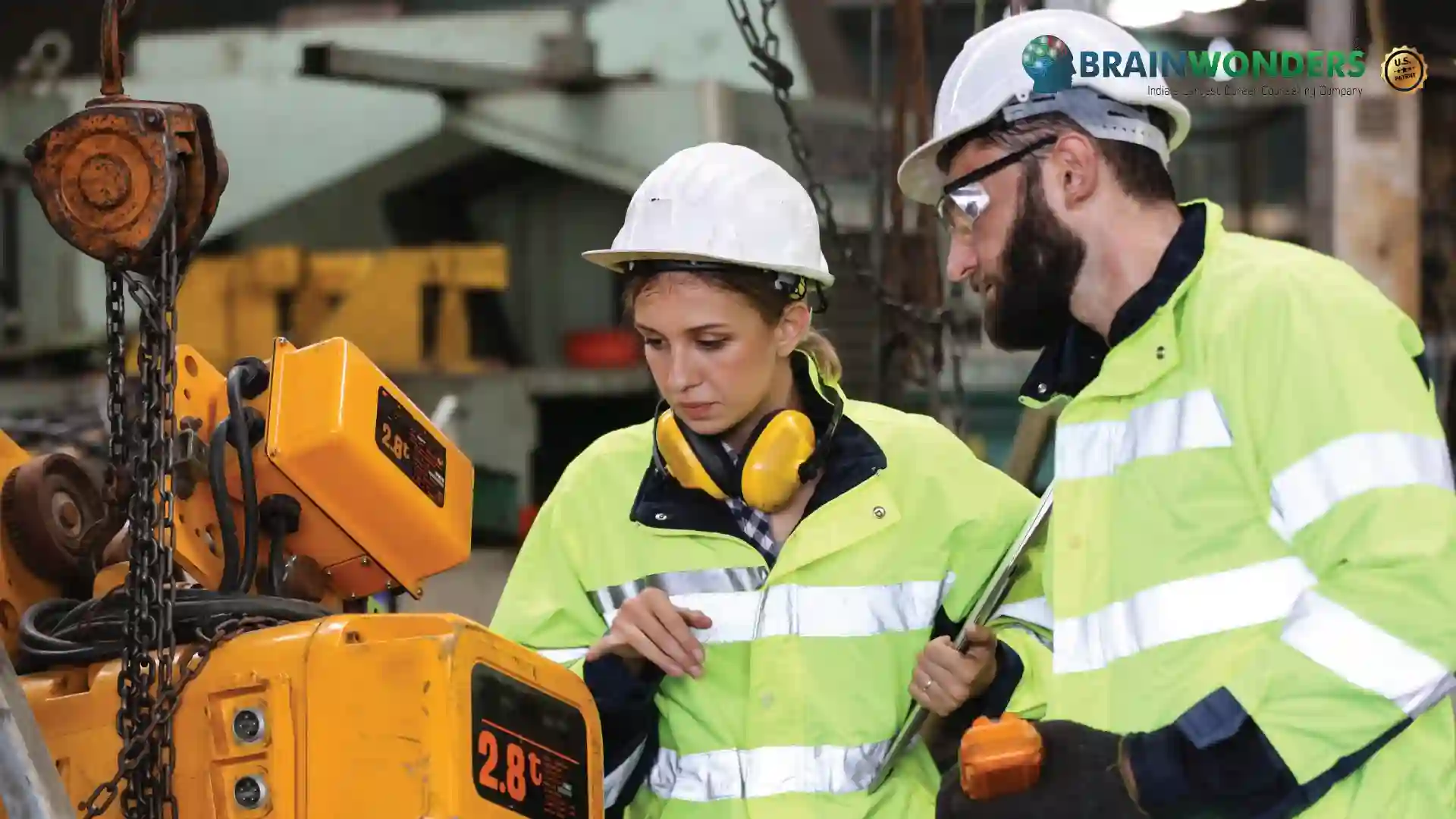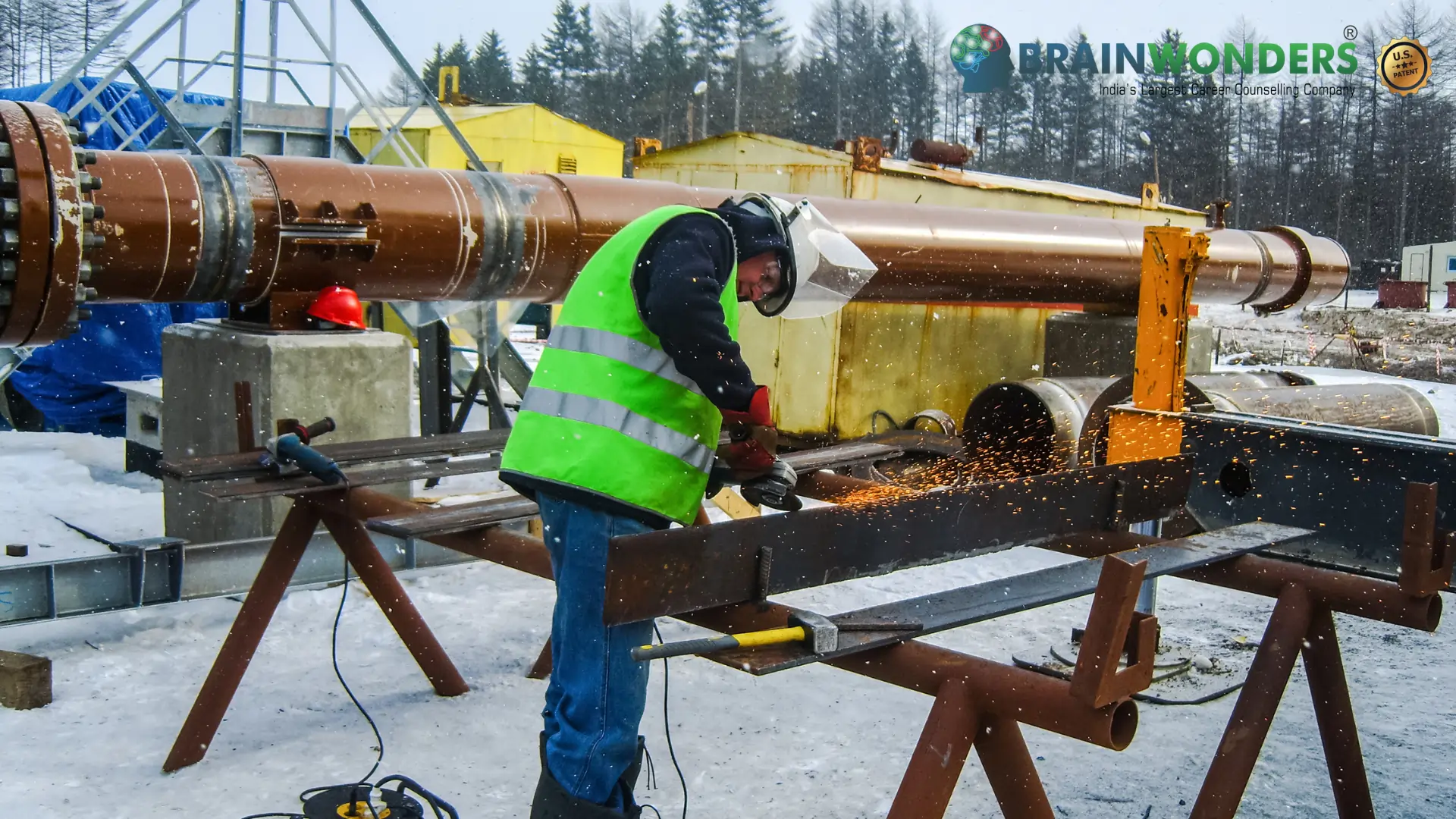How to become a Plumber
Overview, Courses, Exam, Colleges, Pathways, Salary

Overview
Who is Plumber ?
A plumber is a skilled tradesperson specializing in installing, maintaining, and repairing plumbing systems. These professionals are essential in ensuring the proper functioning of water supply, drainage, and gas systems in residential, commercial, and industrial settings. Plumbers work with various plumbing fixtures, such as sinks, faucets, toilets, showers, and water heaters, connecting and aligning them to prevent leaks and ensure efficient water flow.
Their expertise extends to diagnosing and resolving plumbing issues, including leaky pipes, clogged drains, malfunctioning water heaters, and sewer line problems. They are trained to read blueprints, follow building codes and regulations, and work with different piping materials.
Plumbers are vital in maintaining public health and safety by ensuring sanitation and proper sewage disposal. They must have technical skills, physical stamina, problem-solving abilities, and good communication to interact with clients and understand their plumbing needs. Whether responding to emergency calls or conducting routine maintenance, plumbers contribute significantly to the smooth operation of plumbing systems, making them indispensable professionals in the construction and maintenance industry.
Typical day at work
What does Plumber do?
A plumber is a skilled tradesperson specializing in installing, repairing, and maintaining plumbing systems in residential, commercial, and industrial buildings. Their work revolves around water supply, drainage, and gas systems, ensuring they function efficiently and safely. Here are some of the primary tasks and responsibilities of a plumber:
- Installation: Plumbers install and connect various plumbing fixtures and components, including sinks, faucets, toilets, showers, bathtubs, water heaters, and pipes. They ensure proper fittings, connections, and alignment to prevent leaks and water damage.
- Repairs: When plumbing systems develop issues, plumbers diagnose the problems and carry out repairs. They fix leaky pipes, clogged drains, malfunctioning water heaters, and other issues.
- Maintenance: Regular maintenance of plumbing systems is crucial to prevent significant problems. Plumbers conduct inspections, clean drains, check for leaks, and perform preventive care to keep the plumbing system in good working condition.
- Pipefitting: Plumbers cut, bend, and fit pipes to connect them to the plumbing system. They use various tools and techniques to ensure the proper flow of water and sewage.
- Sewer and Drainage: Plumbers work on sewer and drainage systems, including clearing clogs, repairing damaged pipes, and ensuring proper sewage flow to prevent backups.
- Gas Systems: Some plumbers are trained to work on gas systems, including installing gas lines, repairing gas leaks, and ensuring the safe functioning of gas appliances.
- Reading Blueprints: Plumbers must be able to read and interpret blueprints and specifications to understand the layout and design of plumbing systems in buildings.
- Compliance with Codes: Plumbers must adhere to building codes and regulations to ensure that plumbing installations meet safety and quality standards.
- Emergency Response: Plumbers may respond to emergency calls for burst pipes, water leaks, or other urgent plumbing issues.
- Customer Service: Plumbers interact with clients, providing estimates, explaining repairs, and ensuring customer satisfaction.
Abilities and Aptitude needed
What are the skills, abilities & aptitude needed to become Plumber?
Becoming a successful plumber requires a combination of abilities, skills, and aptitudes to handle the various tasks involved in plumbing work. Here are some critical qualities needed to become a plumber:
- Technical Knowledge: Plumbers must possess specialized knowledge of plumbing systems, tools, materials, and equipment used in installations and repairs.
- Problem-Solving Skills: The ability to identify and solve plumbing issues, such as leaks, clogs, and pipe damages, is crucial for a plumber.
- Manual Dexterity: Plumbers work with their hands to assemble, disassemble, and repair plumbing components, requiring excellent manual dexterity.
- Physical Strength: Plumbing work often involves lifting heavy objects and working in confined spaces, necessitating physical strength and stamina.
- Attention to Detail: Plumbers should pay close attention to detail to ensure accurate measurements, precise fittings, and thorough inspections.
- Analytical Thinking: Plumbers need analytical skills to assess plumbing problems and determine the most effective solutions.
- Reading Comprehension: Understanding technical blueprints, diagrams, and manuals is essential for interpreting plumbing system layouts.
- Communication Skills: Effective communication with clients, team members, and suppliers is necessary to understand requirements and convey information.
- Adaptability: Plumbers must be adaptable to work on various plumbing systems and handle unexpected challenges.
- Safety Consciousness: Plumbers should prioritize safety in their work, using proper protective gear and following safety protocols.
- Customer Service: Good customer service skills help plumbers interact with clients professionally, address concerns, and provide satisfactory solutions.
- Time Management: Efficiently managing work schedules and completing tasks within deadlines is vital for plumbing projects.
- Mathematical Skills: Basic mathematical abilities are necessary for measuring, calculating pipe lengths, and estimating material requirements.
- Knowledge of Plumbing Codes: Familiarity with plumbing codes and regulations ensures compliance with legal requirements in plumbing installations.
- Continuous Learning: Staying updated on new plumbing technologies, tools, and industry best practices is essential for professional growth.
Salary
Salary for Plumber?
Salary of A Plumber is as follows :
- Minimum Monthly Salary: The minimum monthly salary for an entry-level plumber may vary based on experience, location, and employer. It could range from INR 15,000 to INR 25,000 or more in India.
- Maximum Monthly Salary: Highly experienced and skilled plumbers, especially those in senior positions or with specialized expertise, may earn a monthly salary ranging from INR 50,000 to INR 1,00,000 or more.
- Annual Salary: The annual salary for entry-level plumbers could be approximately INR 1.8 lakhs to INR 3 lakhs per year. Experienced and well-qualified plumbers may earn a maximum yearly salary ranging from INR 6 lakhs to INR 12 lakhs or more
- Highest paying Jobs and Scope : To become a plumber, one needs technical skills in plumbing systems, tools, and equipment. Physical stamina, problem-solving abilities, attention to detail, and the ability to work independently or in a team are essential. Plumbers should also have good communication skills to interact with clients and understand their plumbing needs. The need for plumbers is constant as plumbing systems require regular maintenance and repairs. Plumbers play a vital role in ensuring the proper functioning of water supply and drainage systems in various settings, contributing significantly to public health and safety.
Pathways
How to become an Plumber?
Entrance Exam
Entrance Exam for Plumber ?
Courses
Which course I can pursue?
Best Colleges
Which are the best colleges to attend to become an Plumber?
Industries
Which Industries are open for Plumber?
Plumbers are in demand across various industries that require plumbing services. Some of the industries that employ plumbers include:
- Construction Industry: Plumbers are essential in constructing residential, commercial, and industrial buildings and installing plumbing systems, fixtures, and pipes.
- Residential Plumbing Services: Plumbers provide services to homeowners for plumbing repairs, installations, and maintenance in residential properties.
- Commercial Buildings: Plumbers are needed in office buildings, shopping malls, hotels, restaurants, and other commercial establishments to handle plumbing installations and repairs.
- Industrial Facilities: Industries such as manufacturing, factories, and warehouses require plumbers to maintain and repair plumbing systems.
- Municipalities: Plumbers work for city or municipal water departments to maintain water supply and sewage systems.
- Plumbing Contractors: Some plumbers work as independent contractors or run their plumbing businesses, offering services to clients on a contract basis.
- Government Agencies: Government organizations, such as public works departments, may employ plumbers for various plumbing projects and maintenance.
- Hospitals and Healthcare Facilities: Plumbers play a vital role in maintaining the plumbing systems of healthcare facilities to ensure proper sanitation and hygiene.
- Educational Institutions: Schools, colleges, and universities employ plumbers to maintain plumbing systems on campus.
- Property Management Companies: Plumbers may work for property management companies to handle plumbing-related issues in rental properties.
- Home Improvement and Maintenance Companies: Plumbers may be hired by companies specializing in home improvement and maintenance services.
- Green Building and Sustainability: Plumbers may find opportunities in industries focusing on sustainable building practices, including green plumbing solutions.
internship
Are there internships available for Plumber?
Plumbers internships can benefit individuals looking to gain practical experience, enhance their skills, and transition into the plumbing profession. While formal training tailored explicitly for plumbers might be limited, there are several opportunities to consider:
- Apprenticeships: Many aspiring plumbers start their careers as apprentices. Internships provide a combination of on-the-job training and classroom instruction under the guidance of experienced plumbers.
- Plumbing Companies: Some companies offer internship programs or temporary positions for individuals interested in learning about the industry. Interns might assist with basic tasks, observe plumbing work, and gain hands-on experience.
- Construction Companies: Interning with construction companies undertaking plumbing projects can provide exposure to plumbing installations in different settings, such as residential, commercial, or industrial sites.
- Municipal Water Departments: Some municipalities may offer internships in their water departments, where individuals can learn about water supply and distribution systems and maintenance and repair work.
- Home Improvement Stores: Large home improvement retailers may have internships or training programs that allow participants to work with plumbing products and learn about plumbing supplies and tools.
- Trade Schools: Enrolling in plumbing courses or programs at trade schools may offer practical training and internships as part of the curriculum.
- Plumbing Associations: Some plumbing associations or unions may have training programs, including internships for aspiring plumbers.
Career outlook
What does the future look like for Plumber?
The future for plumbers also holds promising career prospects. As essential skilled workers in the construction and maintenance industry, plumbers are in demand to ensure the proper functioning of water supply and drainage systems in residential, commercial, and industrial settings.
Factors contributing to the positive career outlook for plumbers include:
- Growing Construction Industry: As urbanization continues, the construction industry thrives, leading to an increased demand for plumbers in new construction projects and renovations.
- Aging Infrastructure: Many countries have aging infrastructure, leading to the need for repairs and upgrades in water and sewer systems, providing steady work opportunities for plumbers.
- Green Initiatives: With a focus on sustainability, there is a growing interest in energy-efficient plumbing systems, offering plumbers opportunities to work on eco-friendly projects.
- Emergency Repairs: Plumbing emergencies, such as leaks and pipe bursts, can occur anytime, ensuring a consistent need for skilled plumbers.
- Specialization Opportunities: Plumbers can specialize in gas fitting, water treatment, or Hydronics, enhancing their expertise and marketability.
- Technological Advancements: Plumbing technology and equipment advancements create demand for plumbers adept at working with modern tools and systems.
- Workforce Retirement: As experienced plumbers retire, the demand for qualified replacements increases, leading to more job openings for newcomers.
- Customer Service Emphasis: Plumbers who excel in communication and customer service skills can build a loyal client base and foster repeat business.
- Adaptability: Plumbers who stay updated on the latest plumbing codes, regulations, and safety standards remain competitive.




